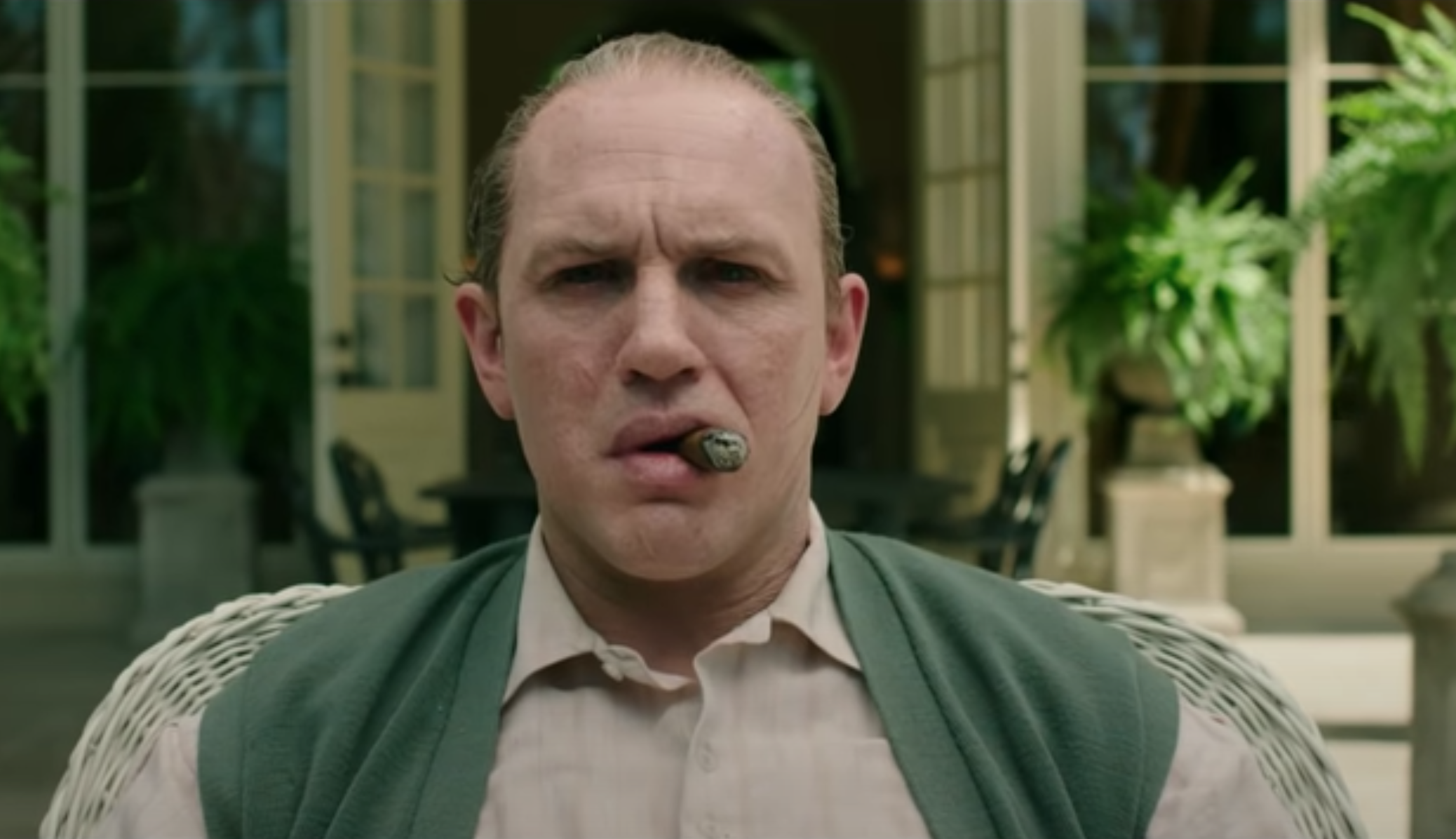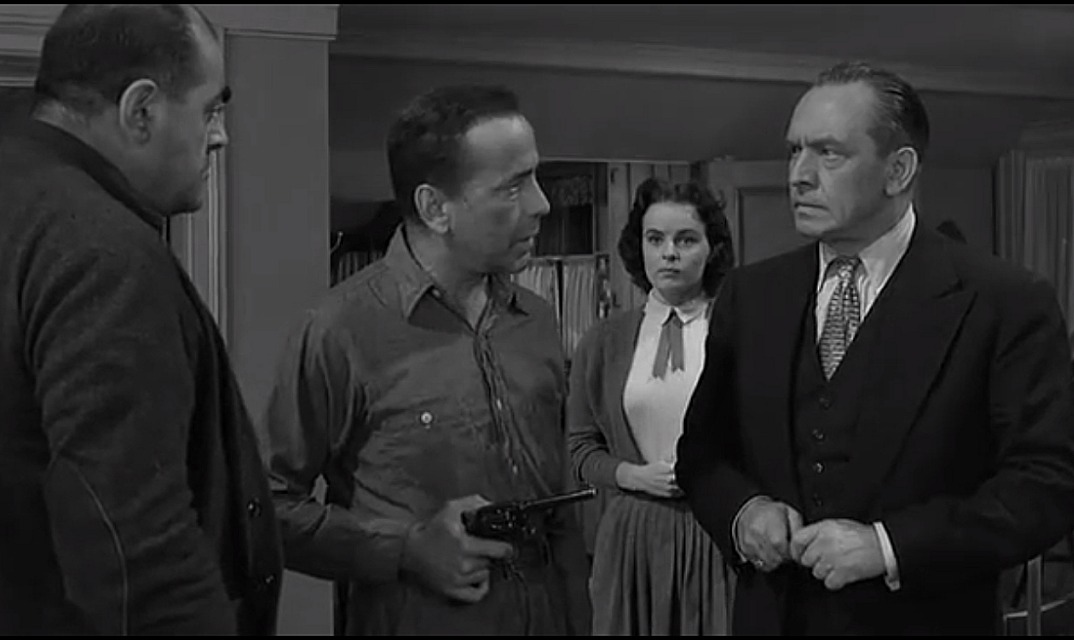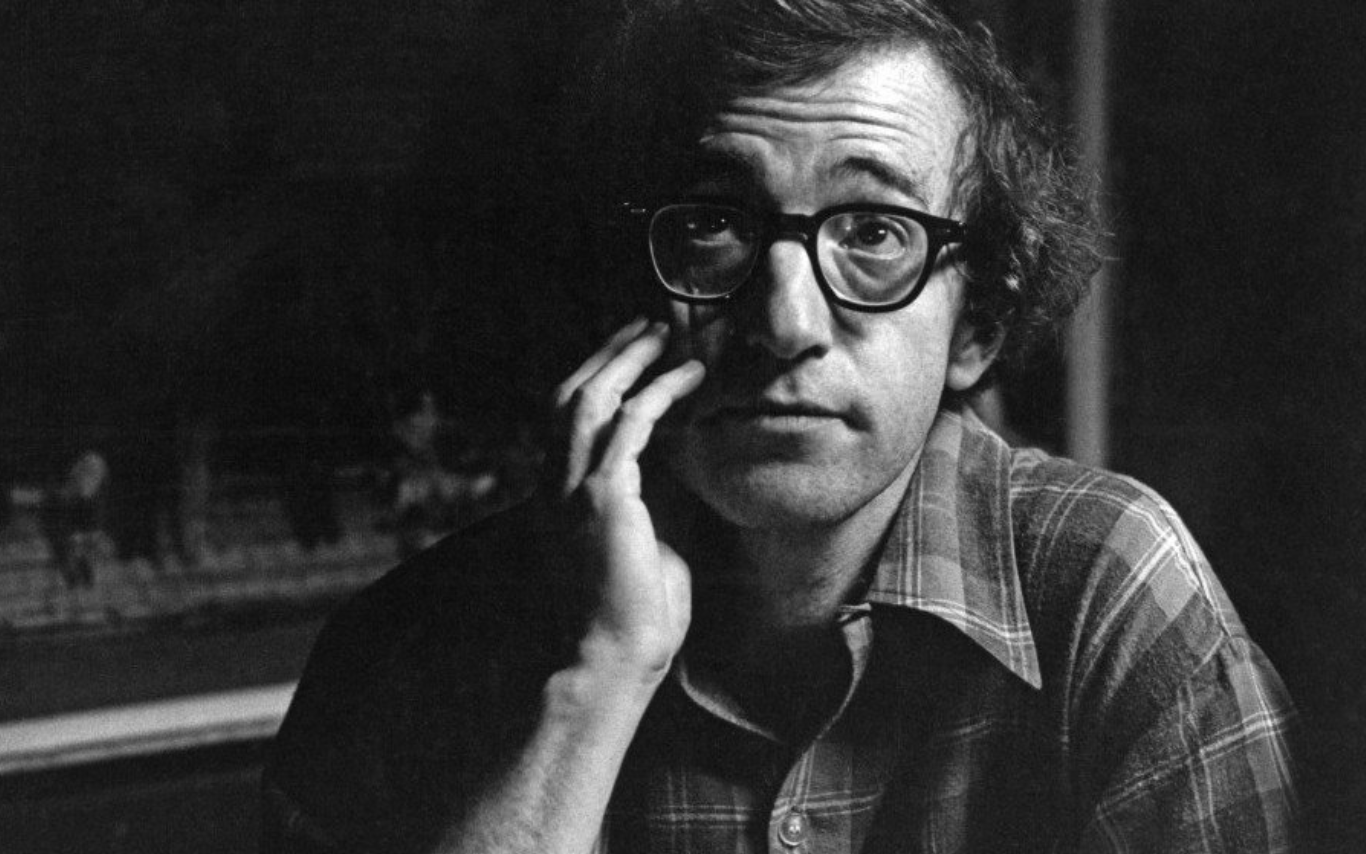For what it’s worth I don’t eat bacon, steak, sausage or chicken as a rule, although I’ll dabble from time to time. (The worst I could be accused of is chicken salad.) Every word that Maher says in this bit is true.
 Jeffrey Wells
Jeffrey Wells
Getting It Right Is Hard
I didn’t post anything today (Friday, 4.24) because finishing the painting of the kitchen took several more hours. I awoke late and futzed around, and finally began around 1 pm. It was mute nostril agony on Devil’s Island. The concentration you have to invest to make sure the painting looks just right is profoundly exhausting, and there are always mistakes and touch-ups and spilled droplets on the floor. (The paint is water soluble.) But now the kitchen is a yellow-white dream. It was all finally done around 7 pm. Now the entire place has been repainted. If it hadn’t been for COVID-19, we might not have made the effort.

Fonzo in the Bonzo
I’ve been asked to remove yesterday’s riff about Capone (Vertical, 5.12), which I saw the night before last. It wasn’t a “review” but I called it “a trip…plotless but flavorful and quirky as fuck thanks to Tom Hardy, and with one terrific, stand-up-and-cheer scene.” I was referring to the “If I Was King Of The Forest” sing-along. Nonetheless a Vertical rep asked me not to “react” to Capone until Monday, 5.11 at 9 am Pacific. The film opens (i.e., begins streaming) on Tuesday, 5.12.
So I’ve substituted the post for a comment-thread riff about why the producers dumped the original title, Fonzo. Which, trust me, is what the film should be called. Capone is nothing — a generic chickenshit title.
No doubt a certain percentage of the potential viewing public might have presumed that this now-discarded title had something to do with Henry Winkler’s Happy Days character, Fonzie. (Who was famously referred to, don’t forget, by Samuel L. Jackson’s hitman character in 1994’s Pulp Fiction).
Perhaps another group might have wondered if Fonzo might be somehow related to Ronald Reagan‘s Bedtime for Bonzo chimpanzee, perhaps a great-great-great grandson with a life and an identity all his own.
Still another demographic might have speculated that “fonzo” is a 21st Century manifestation of gonzo journalism a la Hunter S. Thompson.
Or perhaps a new kind of pasta (i.e., “fonzoni”) created by the people behind Rice-a-Roni, “the San Francisco treat,”
We can play these stupid word association games all day long. The American viewing public is brilliant at this.
Then again there’s always the remote possibility that prospective viewers might regard or respect “Fonzo” as a new permutation of the Al Capone legend — simply an Italian-American nickname used by friends of the famous Chicago gangster in the same way that “Fonzie” was a nickname for Arthur Herbert Fonzarelli.
Naahh, scratch that — too challenging.
I Hate This
Then again it takes my mind off the fact that (a) the world has more or less ground to a halt and (b) “there ain’t no life nowhere” (to borrow from Jimi Hendrix). On top of which I’m really sick of painting. Felt like saying it twice.


Vegas Petri Dish Experiment
I’m not saying I’ll be driving to Las Vegas any time soon. Unlike the mayor of Las Vegas, I’m not crazy or reckless or suicidal. Then again I’m presuming that normally expensive Vegas Strip hotel rooms are currently renting at basement rates. Naah, forget it.
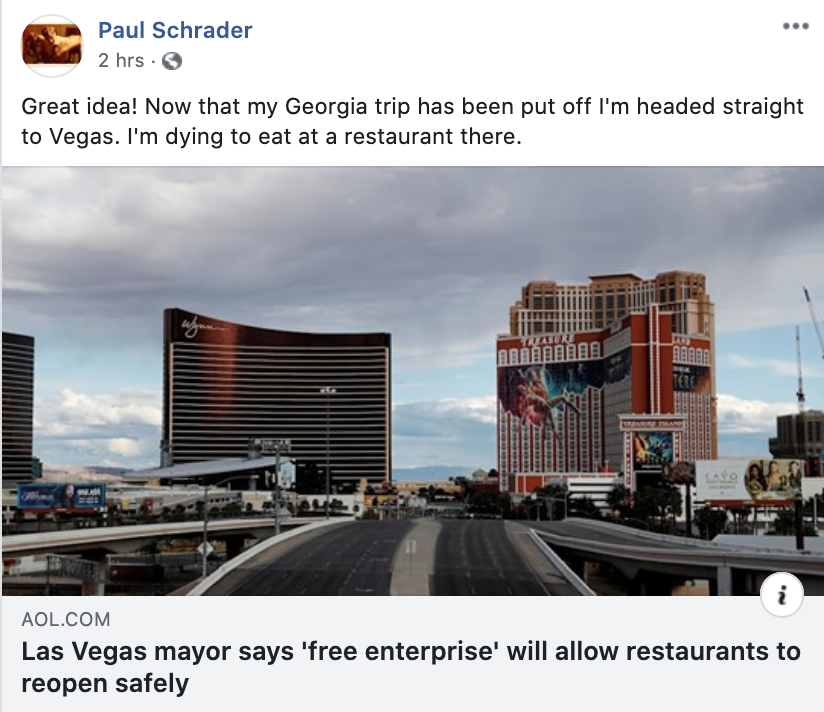
VistaVision Monochrome
VistaVision (large format) black-and-white films were a relative rarity in the ’50s, and they disappeared when VistaVision went away in ’61 or thereabouts. If you have a special affinity for black and white (as I do), you’re pretty much obliged to give the Amazon HD versions of William Wyler‘s The Desperate Hours (’55), Robert Mulligan‘s Fear Strikes Out (’57) and Michael Curtiz and Hal Wallis‘s King Creole (’58) a looksee. All shot in VistaVision. Four or five others went this way.
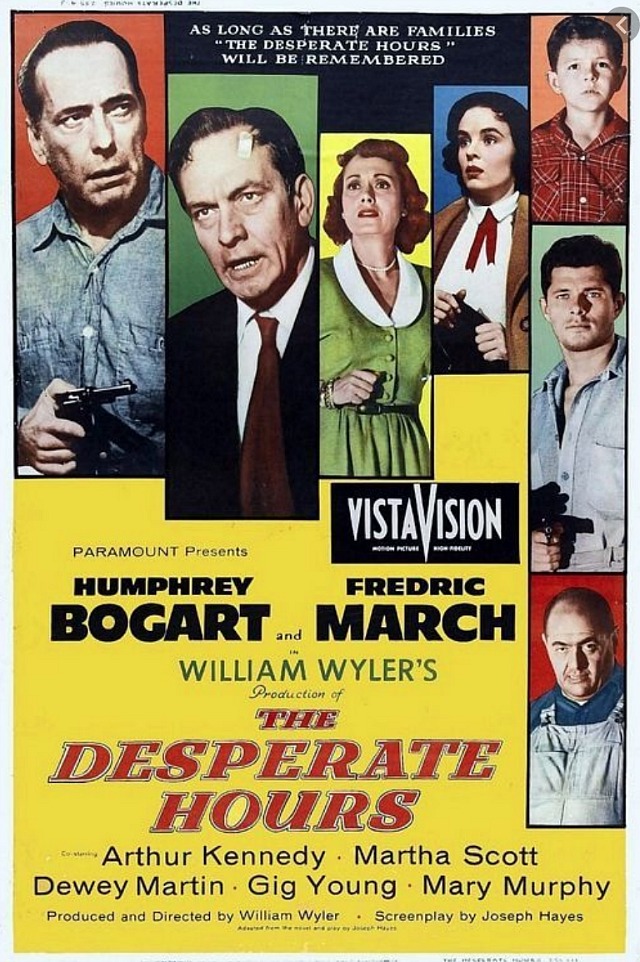
To Be Fair About It…
Not only have I never seen Cornel Wilde‘s No Blade of Grass (’70), but I’d never heard of it until this morning. Odd. I respect Wilde’s The Naked Prey (’65), another film about survival against bad odds, so maybe. The Amazon Prime rental fee is only $2.00.
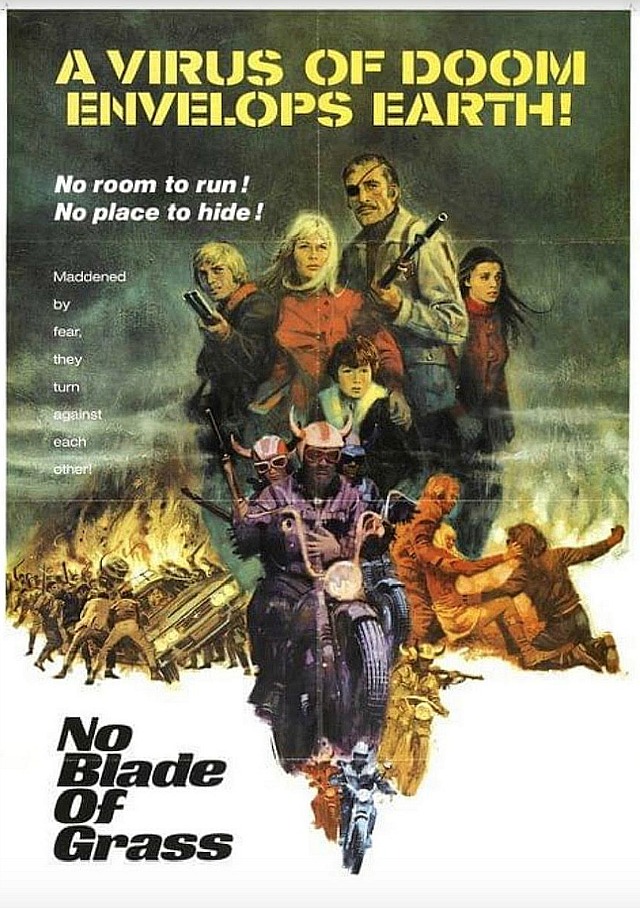
Posts Between Brush Strokes
I’m committed to painting the kitchen today…Jesus. Straight white walls with chiffon lemon cupboard doors. After painting the living room (coral), bedroom (lily lavender walls with soft mint green cupboards) and the bedroom-bathroom foyer (white accented by SMG), I’m getting really sick of this. But at least it’ll be over after today. Or tomorrow as I might quit before day’s end. Maybe not.
Telluride Without Mountain Air?
In a just-posted Indiewire piece about the upcoming 2020 and ’21 Oscar season, Anne Thompson quotes a prominent awards strategist as follows: “To cancel Oscars is to kill cinema…it’s the death knell.”
I for one agree, but when I think of “Oscars” I mostly think of the six-month-long, September-to-February season in which films of a somewhat higher calibre get a lot of attention. One way or another “the season” has to happen, and it has to kick off in September or at least October, come hell or high water.
Thompson also speculates that a New York and Los Angeles-based Telluride Film Festival is more likely than the usual usual. “Virtual participation is far more likely — and if fewer talent attends, and media follows, how eager will studios be to program their films? Most likely, distributors will wind up screening movies curated by the tastemakers at Telluride for media in L.A. and N.Y. under safer conditions in rooms sparsely filled by media and awards voters. ‘Telluride films will be ones you pay attention to,’ said one awards campaigner.”
Harris vs. Allen
Vulture‘s Mark Harris has written a pissy, dismissive, incurious review of Woody Allen‘s “Apropos of Nothing.” He’s certainly entitled to his opinion, but reading the piece gave me stomach acid. Whereas I felt no adverse stomach sensations and experienced mostly pleasure while reading Allen’s book, especially the portion that covers his Brooklyn childhood and teen years.
Seriously — the first 80 or 90 pages of “Apropos of Nothing” are luscious. They’ll put a smile on your face. And Harris more or less pisses on them, in part because Allen delivers the same kind of riff that he used in Broadway Danny Rose, when Allen’s titular character describes a certain female cousin looking “like something you’d find in a live bait store.” Tribal self-loathing, par for the course, etc.
As I wrote on 3.29, Allen has a voice and a style and a certain shticky attitude, and much of the book is like listening to some streetcorner wise guy tell a story from a bar stool. And I’m sorry but unless you’re an Inspector Javert for the #MeToo community, “Apropos of Nothing” is an engaging read. Really. It’s easy to process. It flows right along. And it’s funny and cuts right through for the most part.
Most of Harris’s review makes a case that “Apropos of Nothing” isn’t the deepest or the most probing piece of literary self-excavation or self-examination ever published, which is true. But I weathered the mundane or underwhelming or overly glib parts. Harris, on the other hand, doesn’t like the fact that Allen is who he is, and that his voice is his voice.
“If you can read “Apropos of Nothing” with that in mind, “you’ll have a better-than-decent time with it,” I wrote. “And by that I mean diverting, chuckly, passable, fascinating, occasionally hilarious and nutritional as far as it goes.”
There are two portions of Harris’s review that made me fall over backwards in my chair.
“I understand those moviegoers who have no desire ever to watch or rewatch another Woody Allen movie,” Harris writes.
He does? One of our finest film historians and a highly perceptive film critic “understands” the nonsensical position of Woody haters, which is based on nothing but a blind belief that Dylan Farrow‘s account of what may or may not have happened on 8.4.92 is 100% reliable? There is nothing in terms of evidence or professional opinion (not to mention the account posted by Moses Farrow) that backs up Dylan’s account, but Harris nonetheless “understands” (seems to have no major argument with, feels a certain allegiance with) their ignorance. Shafts of light piercing through the clouds!
“But as a film historian, I can’t remove [Allen’s] films from my cultural vista,” Harris adds, “because they’re not only his. [For] Annie Hall is also an essential part of Diane Keaton’s filmography, and of Gordon Willis’s, and of Colleen Dewhurst’s, and of Jewish filmmaking, and of New York romantic comedy.”
In other words, if it weren’t for the charms of Annie Hall plus the creative participations of Keaton, Willis and Dewhurst, Harris might be tempted to remove Allen’s films from his “cultural vista”? I’m not going to bellow like a buffalo and slap my forehead as I list all the great and near-great films Allen has directed and written and acted in. But I will say this: I’m stunned.
Harris excerpt: “Dwight Garner, who artfully tweezed this book for the New York Times, wrote that he believes that ‘the less you’ve read about this case, the easier it is to render judgment on it.’ I have little to add to that except how deeply I wish I had read less.”
Harris seems to be saying that he hasn’t read Moses Farrow’s history of what happened between Woody, Mia and Dylan. If he has he certainly hasn’t mentioned this in the review. If he hasn’t read the essay, Harris should know that most of the details and accusations against Mia in Woody’s book are backed up by Moses, who by the way is a professional marriage and family therapist.
There’s a passage in Allen’s book that “stopped me in my tracks”, Harris writes. It says that “[Mia] didn’t like raising the kids and didn’t really look after them. It is no wonder that two adopted children would be suicides. A third would contemplate it, and one lovely daughter who struggled with being HIV-positive into her thirties was left by Mia to die alone of AIDS in a hospital on Christmas morning.”
But if memory serves this is all in Moses’ essay. Is Harris implying that Moses’ perspective and viewpoint aren’t worth considering? If he’s not implying this, why the hell didn’t he at least mention that Moses and Woody are on the same page?
Repeating: Expressing disgust at a candid, well-written (if occasionally redundant and overly gracious in terms of costars and collaborators) memoir by one of the most acclaimed film artists of our time, and in so doing signaling lockstep solidarity with #MeToo cancelling, is not a becoming profile, to put it mildly.
Noteworthy Rant
This pissed-off guy seems above-average intelligent. One measure of a fast and nimble brain is the ability to be lucid and persuasive while you’re yelling so hard and loud that your face is turning red. I would love to see him go up against Trump or Fauci or Mitch McConnell or any significant D.C. legislator.
In case you missed @AOC on @maddow last night here’s a short clip: pic.twitter.com/TMcM2moQZY
— Every Billionaire Is A Policy Failure (@DanRiffle) April 22, 2020

